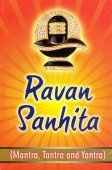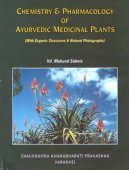Ashin, Aśin, Āśin: 11 definitions
Introduction:
Ashin means something in Hinduism, Sanskrit, Hindi, biology. If you want to know the exact meaning, history, etymology or English translation of this term then check out the descriptions on this page. Add your comment or reference to a book if you want to contribute to this summary article.
The Sanskrit terms Aśin and Āśin can be transliterated into English as Asin or Ashin, using the IAST transliteration scheme (?).
In Hinduism
Shaktism (Shakta philosophy)
Source: Google Books: ManthanabhairavatantramĀśin (आशिन्) refers to “one who eats” (e.g., one who eats the sacrificial pap), according to the Manthānabhairavatantra, a vast sprawling work that belongs to a corpus of Tantric texts concerned with the worship of the goddess Kubjikā.—Accordingly, “(The Śāmbhava yogi) has the authority (to perform the rites), knows the scripture and has a consort. He practices secretly and is always a renouncer. (Being) a householder, he observes the Rule. Solitary, he has a wife and, well hidden, he eats the sacrificial pap [i.e., caruka-āśin]. One who has abandoned strife, (being) tranquil and austere, he attains (the liberated state of) the Skyfarer. He has obtained initiation and, consecrated, he desires success in mantra. [...]”.

Shakta (शाक्त, śākta) or Shaktism (śāktism) represents a tradition of Hinduism where the Goddess (Devi) is revered and worshipped. Shakta literature includes a range of scriptures, including various Agamas and Tantras, although its roots may be traced back to the Vedas.
Shaivism (Shaiva philosophy)
Source: Brill: Śaivism and the Tantric TraditionsĀśin (आशिन्) refers to “one who consumes”, according to the Mataṅgapārameśvara (with Rāmakaṇṭha’s commentary).—Accordingly, “Having worshipped the Lord, he should oblate into the fire at the three junctures of the day a thousand pieces of Udumbara-wood smeared with the three [sweet substances]. Consuming [only] milk (kṣīra-āśin), he should make oblations [in this manner] for seven days. He will become one who has accomplished the vidyāvrata”.

Shaiva (शैव, śaiva) or Shaivism (śaivism) represents a tradition of Hinduism worshiping Shiva as the supreme being. Closely related to Shaktism, Shaiva literature includes a range of scriptures, including Tantras, while the root of this tradition may be traced back to the ancient Vedas.
Biology (plants and animals)
Source: Google Books: CRC World Dictionary (Regional names)Asin in India is the name of a plant defined with Terminalia alata in various botanical sources. This page contains potential references in Ayurveda, modern medicine, and other folk traditions or local practices It has the synonym Pentaptera tomentosa Roxb. ex DC., nom. illeg., nom. superfl. (among others).
Example references for further research on medicinal uses or toxicity (see latin names for full list):
· Prodr. Flora Indica, or ‘Descriptions of Indian Plants’ Orient. (1834)
· Cat. Ind. Pl. (1833)
· Prodr. (1828)
· Novae Plantarum Species praesertim Indiae Orientalis (1821)
If you are looking for specific details regarding Asin, for example side effects, health benefits, extract dosage, diet and recipes, chemical composition, pregnancy safety, have a look at these references.

This sections includes definitions from the five kingdoms of living things: Animals, Plants, Fungi, Protists and Monera. It will include both the official binomial nomenclature (scientific names usually in Latin) as well as regional spellings and variants.
Languages of India and abroad
Sanskrit dictionary
Source: DDSA: The practical Sanskrit-English dictionaryAśin (अशिन्).—a. [aś-ṇini] Reaching far; enduring, lasting.
--- OR ---
Āśin (आशिन्).—a.
1) Eating (in comp.); फलाशी (phalāśī) &c.
2) Aged; नमो युवभ्यो नम आशिनेभ्यः (namo yuvabhyo nama āśinebhyaḥ) Ṛgveda 1.27.13.
--- OR ---
Āśin (आशिन्).—&c. See under आश (āśa).
See also (synonyms): āśita.
Source: Cologne Digital Sanskrit Dictionaries: Benfey Sanskrit-English DictionaryĀśin (आशिन्).—[-āśin], i. e. 2. aś + in, adj., f. nī, Eating, [Mānavadharmaśāstra] 2, 118.
Source: Cologne Digital Sanskrit Dictionaries: Cappeller Sanskrit-English DictionaryĀśin (आशिन्).—[adjective] eating (—°).
Source: Cologne Digital Sanskrit Dictionaries: Monier-Williams Sanskrit-English Dictionary1) Aśin (अशिन्):—[from aś] a mfn. reaching far, lasting long, [Nirukta, by Yāska]
2) b See √1. aś.
3) Āśin (आशिन्):—[from āśa] mfn. ifc. eating, consuming.
Source: DDSA: Paia-sadda-mahannavo; a comprehensive Prakrit Hindi dictionary (S)Āśin (आशिन्) in the Sanskrit language is related to the Prakrit words: Āsi, Āsiṇa.
[Sanskrit to German]
Sanskrit, also spelled संस्कृतम् (saṃskṛtam), is an ancient language of India commonly seen as the grandmother of the Indo-European language family (even English!). Closely allied with Prakrit and Pali, Sanskrit is more exhaustive in both grammar and terms and has the most extensive collection of literature in the world, greatly surpassing its sister-languages Greek and Latin.
Hindi dictionary
Source: DDSA: A practical Hindi-English dictionaryAsin in Hindi refers in English to:—(a) seated..—asin (आसीन) is alternatively transliterated as Āsīna.
...
See also (Relevant definitions)
Starts with: Ashinamara, Ashinj, Ashinjita, Asina.
Ends with (+219): Abhasin, Abhibhashin, Abhilashin, Abhivashin, Abhravakashin, Adivashin, Aksharalavanashin, Alavanashin, Alpabhashin, Amamamsashin, Amamsashin, Amashin, Amedhyakunapashin, Amishashin, Amritaprasin, Amritashin, Anabhibhashin, Anabhilashin, Anarthanashin, Anashin.
Full-text (+56): Nakhashin, Niramishashin, Nirashin, Asina, Anilashin, Bahvashin, Kravyashin, Laghvashin, Purushashin, Pavanashin, Sarvashin, Aksharalavanashin, Amishashin, Jhampashin, Kiratashin, Bhaikshashin, Kundashin, Asin-uluko, Pinang asin, Bol-asin.
Relevant text
Search found 8 books and stories containing Ashin, Aśin, Asin, Āśin, Āsin; (plurals include: Ashins, Aśins, Asins, Āśins, Āsins). You can also click to the full overview containing English textual excerpts. Below are direct links for the most relevant articles:
Vipassana Meditation (by Chanmyay Sayadaw)
Vipassana Meditation Course (by Chanmyay Sayadaw)
The Great Chronicle of Buddhas (by Ven. Mingun Sayadaw)
Sakka’s Question (5): On how firm Opinion arises due to Illusory Concepts < [Chapter 39 - How the Āṭānāṭiya Paritta came to be Taught]
Part 2 - The Nine Supreme Attributes of the Buddha < [Chapter 42 - The Dhamma Ratanā]
Buddhist Education in Thailand (critical study) (by Smitthai Aphiwatamonkul)
6. Vinaya Rules: Life style of Buddhist monks < [Chapter 1 - Introduction]
3. Social Customs of Buddhist Monk in Thailand < [Chapter 4 - Role of the Buddhist Education in The Thai Society]
Impact of Vedic Culture on Society (by Kaushik Acharya)
1.E: Buddhist Expression of Charity < [Chapter 2]
C. R. Reddy < [October – December, 1980]
Related products
(+4 more products available)




